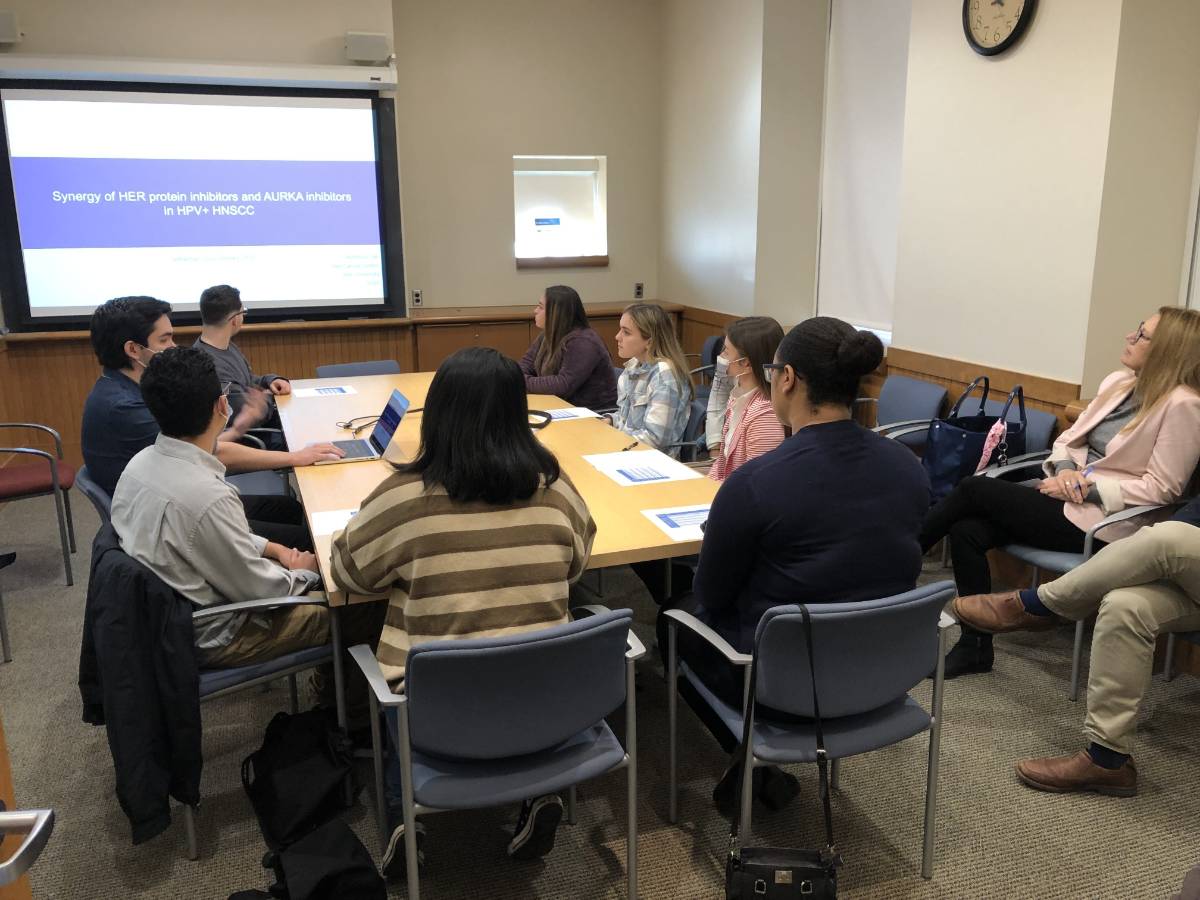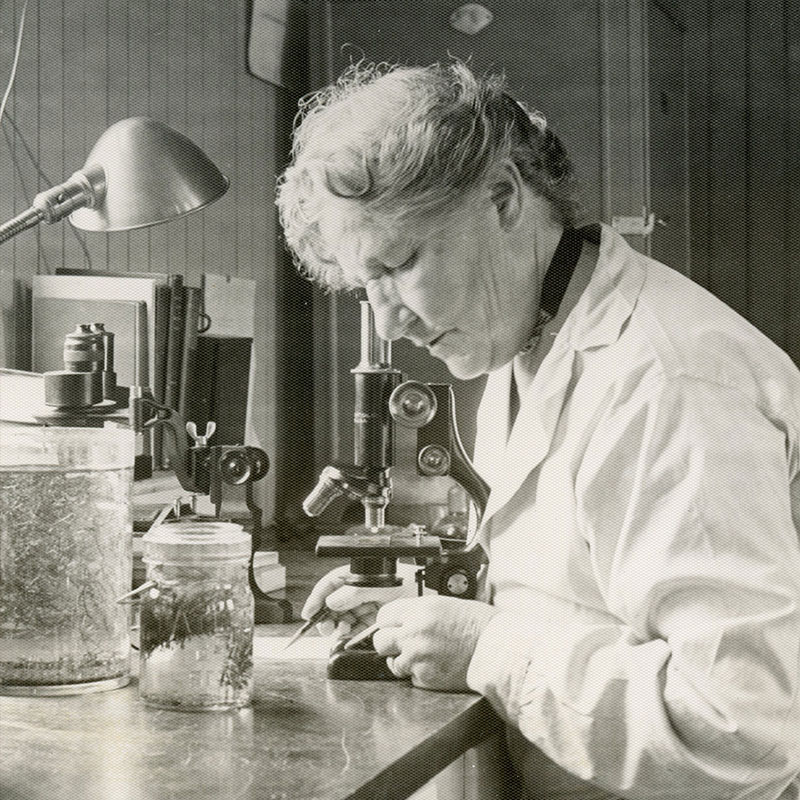Undergraduate STEM Programs
The STEM curriculum is based on the interdisciplinary principles of science, technology, engineering and mathematics and their practical application in everyday life. Instead of these four disciplines being separate entities, they are integrated into a cohesive program supported by research, problem-solving, and critical thinking. Strong STEM students are analytical, curious, and technically-minded.
In general, STEM fields offer strong outcomes in many fields, whether a student chooses to pursue a graduate degree or jump into the job market post-graduation. Since many consider STEM careers to be the backbone of the US Economy, there are several scholarships available to qualifying students. The National Science Foundation S-STEM Grant awarded Albertus Magnus College more than $600,000 for a five-year S-STEM grant in spring 2017 (see below for more information).
What Makes STEM at Albertus Different?
Engaged
Students
- Hands-on, experiential learning
- Interdisciplinary perspectives
- Emphasis on collaborative work
Great
Teaching
- Personally invested professors
- Small class sizes
- Innovative, well-rounded programs
- Resources and opportunities for research
Vibrant
Communities
- Lively extracurricular activities
- Campus-wide events
- Service and community engagement
Successful
Outcomes
- Active career counseling
- Opportunity-building networks
- Access to internships and professional experiences
STEM Degrees at Albertus
Albertus Magnus College offers a variety of STEM baccalaureate degree options:
Biology Chemistry MathematicsWithin my second course year in the biology program at Albertus, I started my internship at Yale-New Hospital in the OB-GYN department. I plan on going into med school after I graduate but prior to that, I am currently studying to get my CNA license, that way I am able to continue working while going to medical school.
Ivah Sores, '14
The Albertus STEM Faculty
Where Will Your STEM Degree take You?
Careers in the STEM fields are some of the fastest growing and currently in highest demand. Professionals in these fields work in research, labs, classrooms, and in offices, depending on their area of expertise.
Possible career paths with a Bachelor of Science degree or Bachelor of Arts degree in STEM include:
Visit to Yale School of Medicine
Albertus STEM students visited Yale School of Medicine Boyer Center after Yale faculty inquired if there was interest in partnering to introduce college undergraduates to cancer research and to create future opportunities for student research.
The day began with presentations by several Yale researchers, continued with a seminar at the Center for Thoracic Cancer, and concluded with tours of both the Burtness and King labs where they watched a demo experiment involving confocal microscopy.
Mark Barreuther, Ph.D., Albertus Chair of the Department of Biology, Chemistry, and Math, said, "Collaborations like this are so important for students interested in science. We are truly encouraged by Yale's outreach and continued support."
Albertus and Yale faculty hope to make this a regular event to expose students to both short- and long- term research and inspire interest in cancer studies. The STEM students were also invited to apply for several summer programs for BioMed Amgen Scholars, Summer Undergraduate Research Fellowship (SURF), and Research Experiences for Undergraduates, to name a few.

Scientific History of Albertus
The sciences at Albertus go back to the early days of our history. In 1927, Marcella O’Grady Boveri arrived at this fledgling college to establish a department of science.
Marcella's background was amazing for a woman of her time.
She was, in 1885, the first woman to graduate from Massachusetts Institute of Technology with a concentration in biology; she studied comparative zoology and embryology at Bryn Mawr; and by 1893 she had become a full professor at Vassar.
Three years later, she was admitted to study science at the University of Wurzburg in Germany, the first woman ever granted acceptance to the science program there. At Wurzburg, she studied with Theodor Boveri, director of the Zoological–Zootomical Institute and one of the world’s first cancer researchers. They married in 1897 and worked together on the chromosome theory of cancer until his death in 1915.
Marcella Boveri remained in Germany until 1926 when she returned to the United States for what was supposed to be just a brief visit: however, fortuitously for Albertus, she learned from a friend who was married to a former Yale University dean that the new liberal arts college in New Haven was looking for a woman of distinction to create and run its science department. When her contacts at Yale assured her that the resources of its Osborn Zoological Laboratory and Yale libraries would be available to her, she accepted the offer from Albertus. Marcella Boveri remained at Albertus until she retired in 1943; she died in October 1950.

STEM Courses
Interested in learning more about the diverse courses offered at Albertus?
Become Part of the Albertus STEM Community
Have questions about STEM? Ready for the next step?
Let us know how we can help plan your future.
Request STEM Undergraduate Information
Professional STEM Resources and Associations
The Albertus STEM Degree Mission Statement
The mission of the Department of Biology, Chemistry and Mathematics is to build upon the College’s Liberal Arts focus to prepare students with the knowledge, skills, and judgment necessary to be responsible, able practitioners in their chosen fields. The majors are designed to prepare students for careers in pharmaceutical sciences, medicine, allied health careers, science education, research, biotechnology industry, government service, and scientific writing. Majors are advised individually about their choice of courses according to their special interests and abilities. The faculty works closely with students, helping them to prepare for entrance into both professional and graduate programs.

